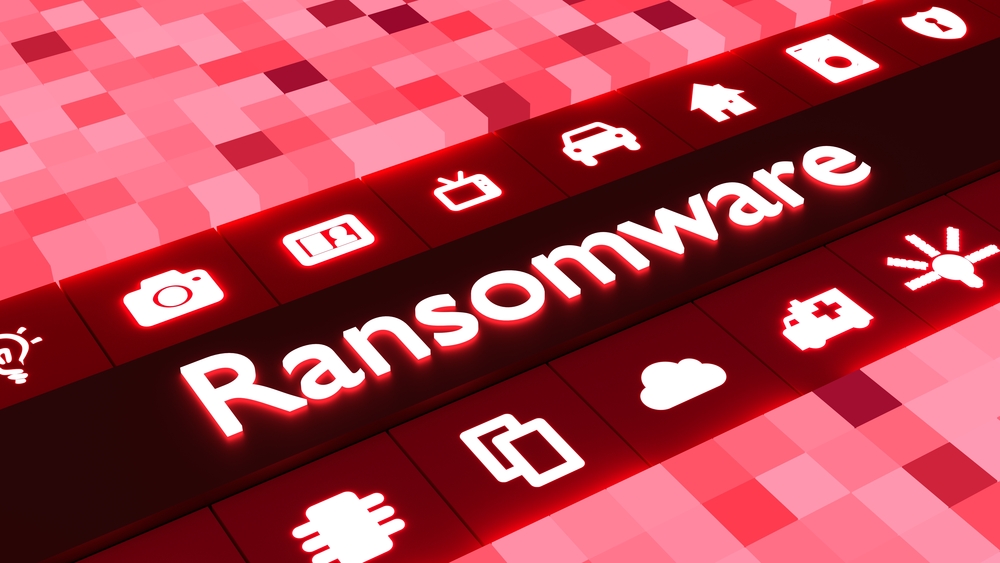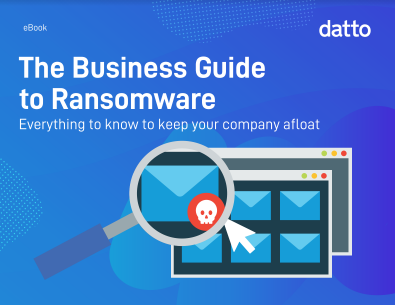Hackers used SonicWall zero-day flaw to plant ransomware
Ransomware group UNC2447 used an SQL injection bug to attack US and European orgs


Security researchers have discovered a new strain of ransomware designed to exploit a SonicWall VPN zero-day vulnerability before a patch was available.
RELATED RESOURCE

The business guide to ransomware
Everything you need to know to keep your company afloat
According to researchers at Mandiant, the flaw exists in SonicWall’s SMA-100 series of VPN products. Hackers, who Mandiant dubbed UNC2447, targeted organizations in Europe and North America with a new ransomware known as FiveHands, a rewritten version of the DeathRansom ransomware.
Hackers deployed the malware as early as January this year along with Sombrat malware at multiple victims that were extorted. Researchers noted that in one of the ransomware intrusions, the same Warprism and Beacon malware samples previously attributed to UNC2447 were observed. Researchers are certain that the same hacking group used Ragnar Locker ransomware in the past.
“Based on technical and temporal observations of HelloKitty and FiveHands deployments, Mandiant suspects that HelloKitty may have been used by an overall affiliate program from May 2020 through December 2020, and FiveHands since approximately January 2021,” the researchers said.
Researchers said FiveHands is suspected to be affiliate ransomware and the successor to another variant of DeathRansom called HelloKitty. The HelloKitty ransomware has been used to hold games firm CD Projekt Red to ransom. They added that they observed a private FiveHands Tor chat earlier this month using a Hello Kitty favicon.
The new FiveHands malware improves on HelloKitty and DeathRansom by using a memory-only dropper and encryption on more files and folders. The malware can also "use the Windows Restart Manager to close a file currently in use so that it can be unlocked and successfully encrypted."
The exploit the ransomware uses is CVE-2021-20016, a critical SQL injection vulnerability that exploits unpatched SonicWall Secure Mobile Access SMA 100 series remote access products. Researchers said this flaw allows a remote, unauthenticated attacker to submit a specially crafted query to exploit the vulnerability.
Get the ITPro daily newsletter
Sign up today and you will receive a free copy of our Future Focus 2025 report - the leading guidance on AI, cybersecurity and other IT challenges as per 700+ senior executives
“Successful exploitation would grant an attacker the ability to access login credentials (username, password) as well as session information that could then be used to log into a vulnerable unpatched SMA 100 series appliance,” said researchers
This vulnerability only impacted the SMA 100 series and was patched by SonicWall in February 2021.
The hackers make money from intrusions by extorting their victims first with FiveHands ransomware. That is “followed by aggressively applying pressure through threats of media attention and offering victim data for sale on hacker forums,” according to researchers.
"UNC2447 has been observed targeting organizations in Europe and North America and has consistently displayed advanced capabilities to evade detection and minimize post-intrusion forensics."
Researchers said while similarities between HelloKitty and FiveHands are notable, different groups may use ransomware through underground affiliate programs.
Rene Millman is a freelance writer and broadcaster who covers cybersecurity, AI, IoT, and the cloud. He also works as a contributing analyst at GigaOm and has previously worked as an analyst for Gartner covering the infrastructure market. He has made numerous television appearances to give his views and expertise on technology trends and companies that affect and shape our lives. You can follow Rene Millman on Twitter.
-
 The Race Is On for Higher Ed to Adapt: Equity in Hyflex Learning
The Race Is On for Higher Ed to Adapt: Equity in Hyflex LearningBy ITPro
-
 Google faces 'first of its kind' class action for search ads overcharging in UK
Google faces 'first of its kind' class action for search ads overcharging in UKNews Google faces a "first of its kind" £5 billion lawsuit in the UK over accusations it has a monopoly in digital advertising that allows it to overcharge customers.
By Nicole Kobie
-
 Cleo attack victim list grows as Hertz confirms customer data stolen – and security experts say it won't be the last
Cleo attack victim list grows as Hertz confirms customer data stolen – and security experts say it won't be the lastNews Hertz has confirmed it suffered a data breach as a result of the Cleo zero-day vulnerability in late 2024, with the car rental giant warning that customer data was stolen.
By Ross Kelly
-
 ‘Phishing kits are a force multiplier': Cheap cyber crime kits can be bought on the dark web for less than $25 – and experts warn it’s lowering the barrier of entry for amateur hackers
‘Phishing kits are a force multiplier': Cheap cyber crime kits can be bought on the dark web for less than $25 – and experts warn it’s lowering the barrier of entry for amateur hackersNews Research from NordVPN shows phishing kits are now widely available on the dark web and via messaging apps like Telegram, and are often selling for less than $25.
By Emma Woollacott
-
 Healthcare systems are rife with exploits — and ransomware gangs have noticed
Healthcare systems are rife with exploits — and ransomware gangs have noticedNews Nearly nine-in-ten healthcare organizations have medical devices that are vulnerable to exploits, and ransomware groups are taking notice.
By Nicole Kobie
-
 Alleged LockBit developer extradited to the US
Alleged LockBit developer extradited to the USNews A Russian-Israeli man has been extradited to the US amid accusations of being a key LockBit ransomware developer.
By Emma Woollacott
-
 February was the worst month on record for ransomware attacks – and one threat group had a field day
February was the worst month on record for ransomware attacks – and one threat group had a field dayNews February 2025 was the worst month on record for the number of ransomware attacks, according to new research from Bitdefender.
By Emma Woollacott
-
 CISA issues warning over Medusa ransomware after 300 victims from critical sectors impacted
CISA issues warning over Medusa ransomware after 300 victims from critical sectors impactedNews The Medusa ransomware as a Service operation compromised twice as many organizations at the start of 2025 compared to 2024
By Solomon Klappholz
-
 Warning issued over prolific 'Ghost' ransomware group
Warning issued over prolific 'Ghost' ransomware groupNews The Ghost ransomware group is known to act fast and exploit vulnerabilities in public-facing appliances
By Solomon Klappholz
-
 The Zservers takedown is another big win for law enforcement
The Zservers takedown is another big win for law enforcementNews LockBit has been dealt another blow by law enforcement after Dutch police took 127 of its servers offline
By Solomon Klappholz